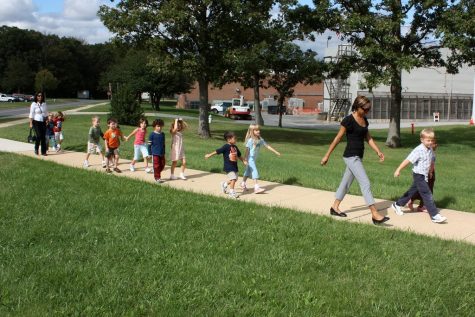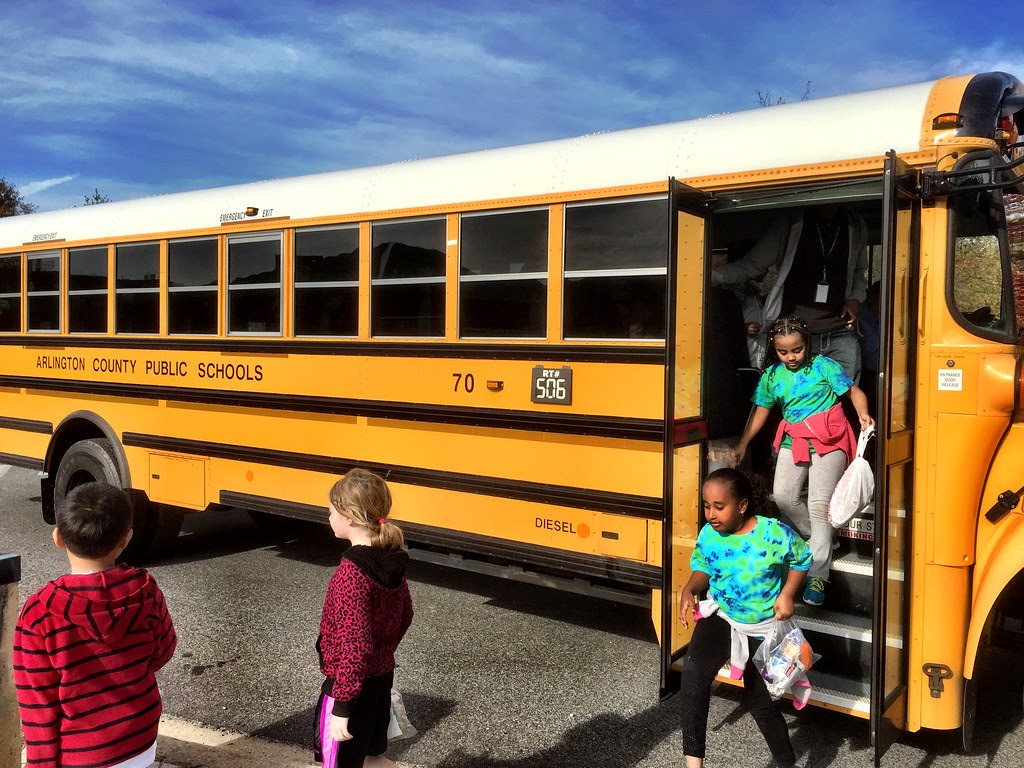Field Trips: How they lead to further enrichment and are beneficial to students
April 3, 2020
A nice sunny breezy day at the zoo. Kids in groups with their leaders, walking around, observing the animals. The smell of the fresh water where the seals flap their tails. A fun field trip!
Field trips have been known to help students learn communication skills, better learning habits, and many more things that lead to further enrichment and better lives in the future.
Whether it’s a simple trip to the park or a more focused trip for a class, field trips in general have been proven to better student’s educational lives and their lives outside of school.
What Trips Do For Students
According to NEA Member Benefits, it has been said that, “regardless of gender, ethnicity or socioeconomic status, youth who take educational trips have better grades (59 percent), higher graduation rates from high school (95%) and college (63%), and greater income (12% higher annually).”
Field trips have been proven to give better performance in and outside of school, no matter what type of education students get.
As previously stated, educational trips like to a museum, library, shelter, etc help students open up their eyes and see what other things are around them besides schoolwork.
How students feel about field trips

Freshman Amelia Castillo says that “Field trips are a good way of learning from outside of the classroom and from others perspectives, most of the time experts (if it is related to whatever your class is about).”
When students are exposed to new learning techniques, usually more fun ones due to the incorporation of a field trip, they are able to understand more of what they are learning.
When Castillo went on a trip for her Multilingual World module, she said that, “It helped [her] understand that even if a language is extinct or not as used there’s still a lot of people out there that live by it and a lot of places that use that language and try their hardest to keep it alive.”
It was hard for her to understand what she was learning in her class, but when she went on the trip, everything was much more clear and easier to understand.
Just like Castillo, many other students feel the same way. Once exposed to new learning techniques, it’s easier for kids to comprehend what they are learning about and see it from a different angle.
Students might not understand what they are learning the first time around, but as they develop new learning techniques and find different ways to go about the topic, they can better analyze what they are learning about.
Furthermore, field trips can also help students remember what they are learning visually, as compared to what they are learning in class through notes or with their teachers.
Alexa Castillo, a freshman, says that, “I think field trips are good to have in schools because they give kids and teens the opportunity to experience what they’re learning rather than just sitting in a classroom everyday listening to a teacher talk.”
The visualization of what students are learning through field trips really makes a difference than having to watch a teacher talk, as Alexa stated. Students can get bored easily and get off track with their work in class.
This is why with field trips they are constantly up and responsive to questions that might be asked on trips rather than in class.
Teachers’ thoughts on trips
Ask many teachers about what they think about field trips, and they will say that they are great for students! From the learning skills they provide, to the engaging time with their peers outside, field trips are a useful way for students to experience new things outside of school but still in a safe environment, and many teachers certainly think so.
History teacher Ms. Turso gave her opinion on field trips and what they do for students:“There’s something about being in a physical environment that’s different from school that I think is just memorable overall from a personal level.”
Ms. Turso has organized many trips during her time at the iSchool and in other schools she taught at. She enjoys spending time with her students and seeing their learning progress through the use of field trips.
“Being able to connect the work we’re doing in class to what people like adults/professionals are doing I think is meaningful…we’re really trying to model what people see in the real work I think is valuable.”
Allowing kids to see and learn the topics of a class in different ways expands the knowledge they are taking in and exploring everyday.
In an article written by the staff of Explorable Places, it was stated that, “They are able to access the content better when they can learn holistically. When they return to school, the trip that they took can serve as a touch point for an entire unit.”
As we knew before or now know, it is proven that field trips help students understand what they are learning in class by applying what they learned on the trip.
Students are able to comprehend topics talked about in class better and explain it as a whole with what they have already learned in class, and may have struggled with, and what they now know after going on the educational trip.
Trips are not just beneficial for students in their current studies, but also in their future lives and education. Educational trips have been proven to improve students’ performances in school.
An article by Moms LA said that, “…if we had more field trips, education would be more creative and effective in getting kids to successfully graduate high school and college. As well as preparing them to make big differences to communities and life as we know it.”
Educational field trips are preparing, as stated previously, students for what’s to come. They are able to learn new things about animals, people, cultures, and more that they didn’t know before.
All in all, field trips as we know have helped students do better in their classes, show progression in what they are learning, and have led to further enrichment for their future of their academic and personal lives.
In my personal opinion being a student, I think that field trips really do help students in general understand what they are learning in class. Rather than having a teacher talk on and on about the same topic, trips allow us to see things from new perspectives and get a different feel of the topic.
Not just the educational benefits field trips have on students, I also think that they help students get a breath of fresh air and be outside learning new skills instead of being in school all day with non stop learning.
They let us take a break from a school environment and help visual learners who take in knowledge better hands on, and are overall a great thing teachers can do to help students do good in their class.
